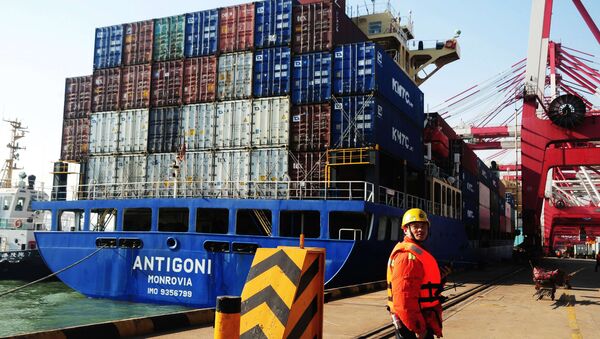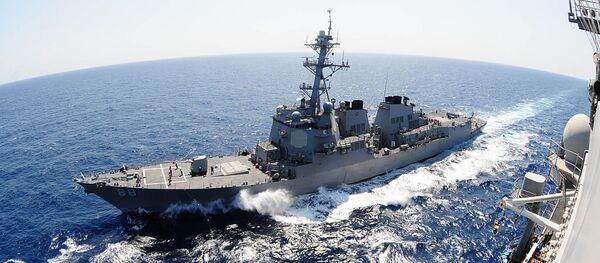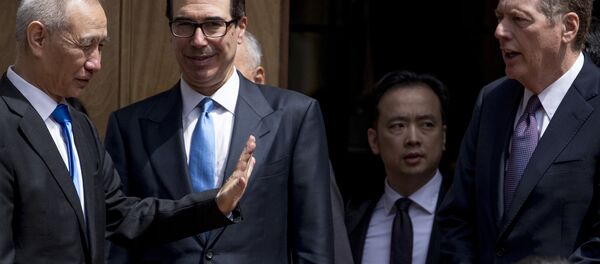The letter, signed by over 170 companies, says that almost all footwear in the world is made in China. The industry already pays $3 billion in taxes a year, and this business is not very marginal, so additional duties can only be passed on to consumers.
The open letter has been posted on the website of the industry’s trade organisation — Footwear Distribution and Retailers of America. The letter was also sent to Treasury Secretary Steven Mnuchin, Secretary of Commerce Wilbur Ross, and Trump's economic adviser Larry Kudlow. It said that the pricing policy pursued by the United States with respect to China will have a "catastrophic” effect on American consumers, business, and the US economy as a whole.
READ MORE: ‘Difficult Situation’: US-China Trade War Ups Pressure on Struggling Farmers
President Trump has repeatedly stated that the trade war benefits the American economy. According to him, the United States receives billions of dollars in tariffs imposed on goods imported from China. Trump is encouraging companies to transfer high-tech manufacturing back to the US, and produce consumer goods in Southeast Asia.
Only 6 percent of companies consider production transfer to the US a possibility, while 24.7 percent are looking into countries in Southeast Asia, 10.5 percent — to Mexico, a little more than 8 percent — to India, Bangladesh, Pakistan, and Sri Lanka. At the same time, almost 75 percent of the survey’s participants reported that it would have a negative impact if tariffs are increased by both countries.
Earlier, China's Foreign Ministry spokesman Lu Kang said that “enthusiasm for foreign investors in China remains high”. Lu said that the world's largest manufacturers — Tesla, BASF, BMW — have all recently increased their investments in China. Even despite the fact that labor costs in China are higher than in many Southeast Asian countries, due to well-established supply chains and developed production infrastructure, return on investment in China is much higher, according to the director of the World Economy and Development Studies at the China Institute of International Studies Jiang Yuechun.
READ MORE: Trade War Sees 40 Percent of US Firms Relocate Operations Beyond China — Report
“First of all, the business environment in China is getting better. If you look at last year’s global rating of the business environment, China has made great progress. The business environment is very important since any manufacturer takes into account the political, legal environment and other conditions in the country where it is planning to start production.
He also added that “thirdly, it is necessary to note the good quality and qualification of the labor force in China. The Chinese are traditionally very hardworking and resilient. If you compare with other new economies, developing countries, China is ahead of most of them in terms of the average level of education of the population. I've spoken to some entrepreneurs who transferred production from China to other countries in Asia and everyone said that the qualifications of local workers and specialists in many ways are lower than in China”.
Jiang Yuechun explained that another very important factor is cost.
READ MORE: Trade War: US to Pay Heavy Price for Underestimating China – Chinese Businessman
“Any investor, first of all, thinks about how to make money on their investment. And despite the fact that the cost of labor in China keeps growing, if you evaluate the situation as a whole, investing in China is still more profitable than in other countries. And the cost of labor in China compared with developed countries is still not so high”.
For example, the American industrial giant Cummins makes engines from parts supplied from China. So in the short-term, the company has two options: either to work with a lower profit margin or to shift the costs that have increased due to tariffs to the consumer.
Views and opinions expressed in this article are those of Jiang Yuechun and do not necessarily reflect those of Sputnik.




